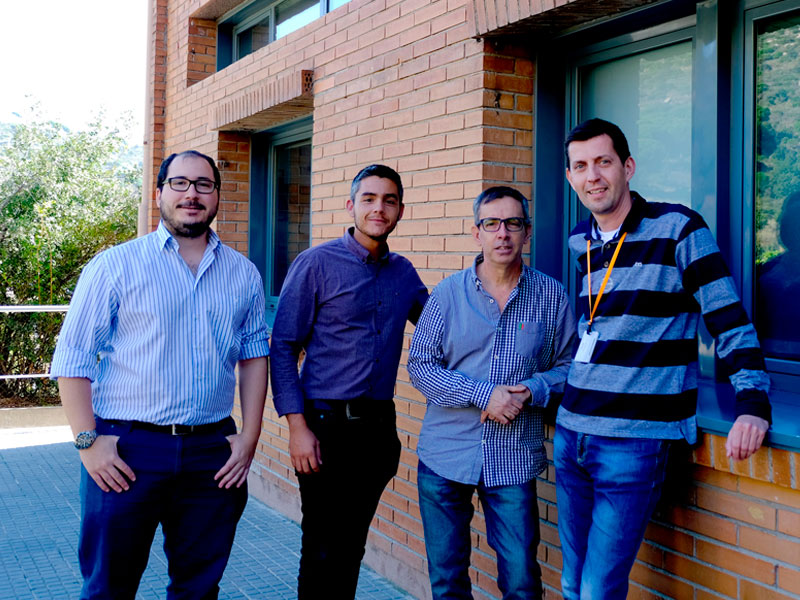The IGTP and the ICO join forces with the IRONMAN Project, the largest international registry for research into metastatic prostate cancer

The Urological Tumour Group of the Catalan Institute of Oncology (ICO-B·ARGO) at the Germans Trias i Pujol Research Institute (IGTP) led by Dr Albert Font Pous in collaboration with the Urology and Radiology Service at the Germans Trias i Pujol Hospital have joined the IRONMAN Registry Project this November. The project was created and is being financed by the Movember Foundation.
"Like the other participating centres, our objective is to collect blood samples and clinical information for at least 50 patients per year over the next two years," explains Albert Font, leader of the project for the IGTP. As well as identifying patients to include in the cohort. "We will carry out the collection, processing and storage of the samples and associated information so we can participate in the molecular studies that will be the next step," adds Dr Vicenç Ruiz de Porras, researcher in charge of the project at the IGTP within the Resistance, Chemotherapy and Predictive Biomarkers Research Group. Centres contributing to the IRONMAN Registry in Spain are the Spanish National Research Centre (CNIO), the Vall d'Hebron Institute of Oncology (VHIO) and other centres of reference.
Since its start in 2017 the IRONMAN Project has had the objective of recruiting 5,000 patients with advanced prostate cancer that continues to grow even in when testosterone levels are reduced to minimal (known as castration-resistant prostate cancer CRPC). A biological sample and detailed demographic and epidemiological information will be collected from each patient, along with their response to treatment and relevant clinical information. The patients will be followed up for a minimum of three years. The main objective is to better understand the disease in order to be able to prevent or delay its progression and improve treatments, that is to say, to improve survival and quality of life for these patients. "Metastatic prostate cancer is a very heterogeneous pathology; that means that the evolution of the patients and their response to treatment varies a lot between individuals," explains Ruiz de Porras. "In the same way as is happening for other types of tumour, if we are able to identify different clinical and molecular subtypes of prostate cancer, we will be able to predict the survival and response of each patient and apply the appropriate treatment to each one."
One of the unique aspects of this study is that it the register is international including many countries with very varied populations. Around 366,000 men die each year from prostate cancer worldwide and the leading cause of cancer deaths in 29 countries, most of these are due to castration resistant prostate cancer.

